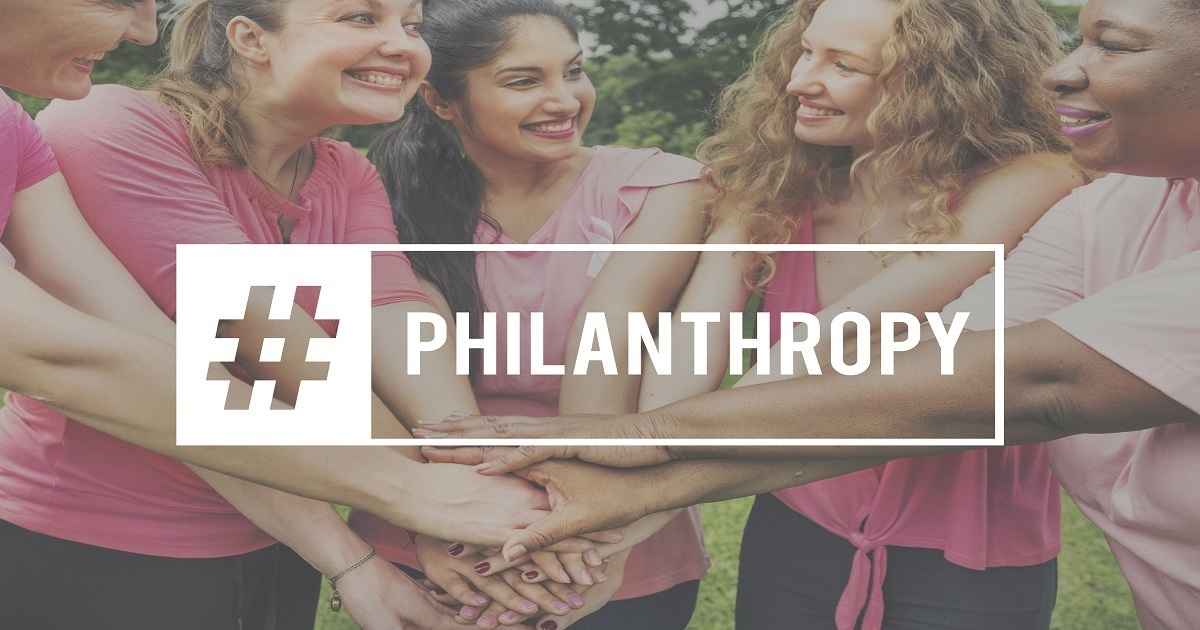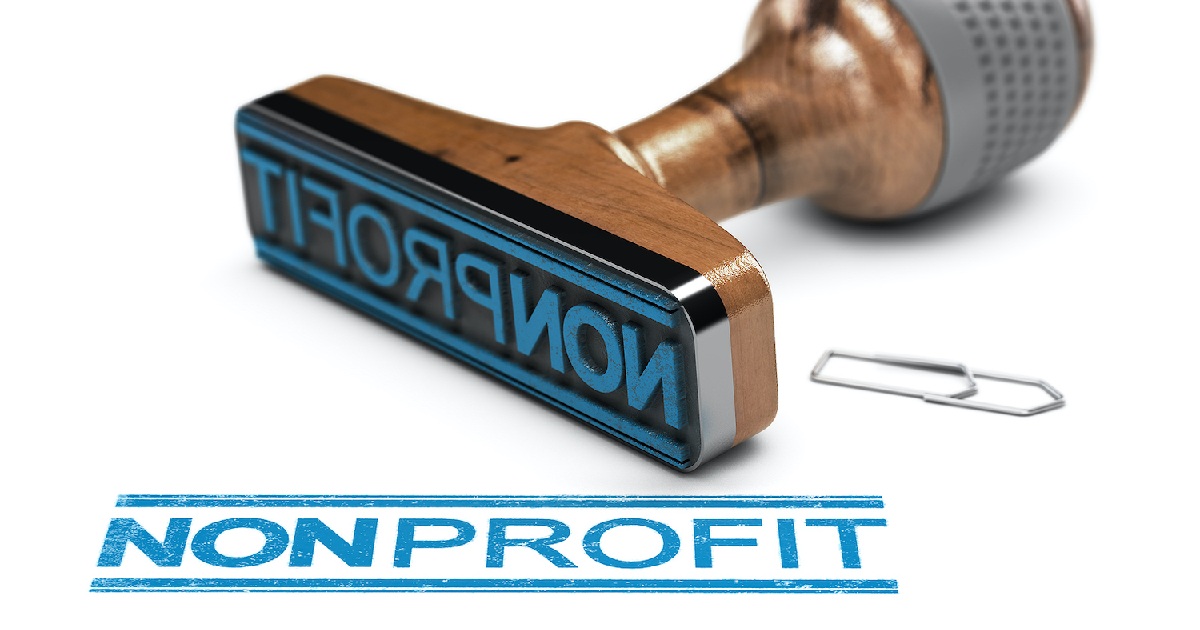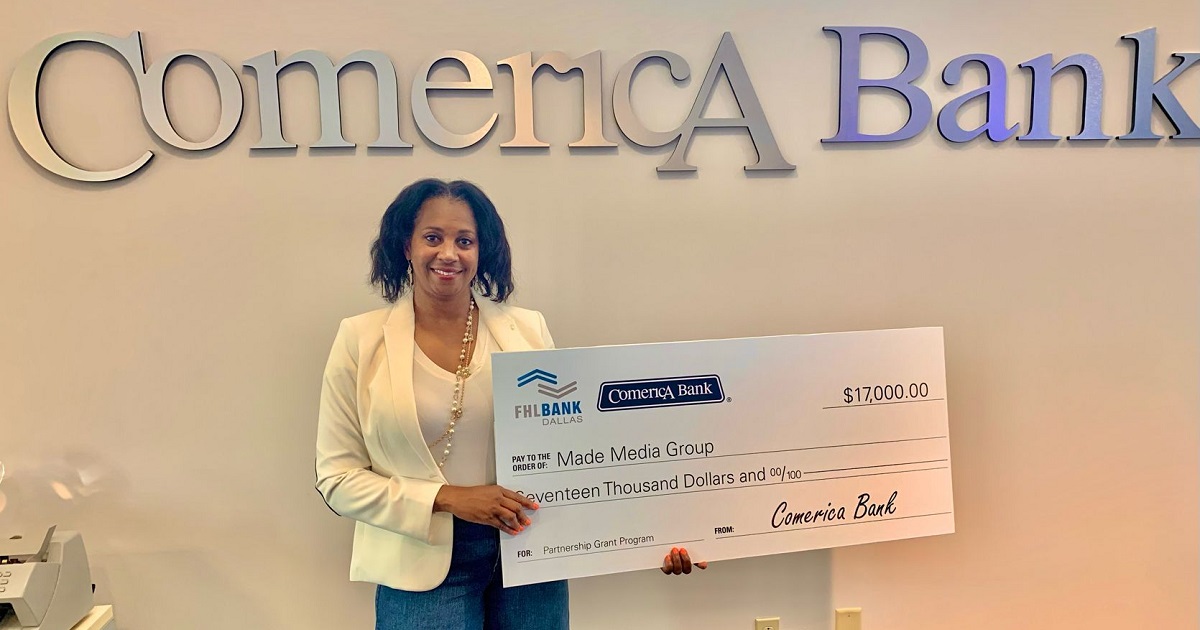
Nonprofit Technology, Philanthropy
Prnewswire | April 05, 2023
Foundant Technologies (Foundant), a provider of innovative software solutions for the philanthropic community, and its executive leadership team were recently honored with Higher Logic's Most Valuable Community Champion award for creating real connections and knowledge sharing through Compass, its online community for philanthropy. Compass provides more than 4,000 community members with the opportunity to explore discussions, find resources and exchange ideas that will help them achieve their missions.
"We are honored to be recognized for our dedication to creating connections – between people, organizations and data – and for helping philanthropic organizations in their pursuit to change the world," said Foundant's CEO and co-founder Chris Dahl. "One of our key values is enriching the philanthropic community, and we will continue to do that, first and foremost, through our software and by fostering engagement within this community and providing valuable resources for it."
Foundant's online Compass community is a free peer-to-peer forum where members can share best practices to better serve the communities they support. In three years, the community has grown to more than 4,000 users in five countries representing nearly every role in the philanthropic sector, including funders, nonprofits, scholarship providers, community foundations, and the volunteers and board members that support these organizations. Members are actively engaged in the community, with the site boasting an 86% participation rate.
"Every day we have the opportunity to work with individuals and organizations that inspire us through their commitment to driving community innovation," said Jay Nathan, Higher Logic Chief Customer Officer. "These Champions of Community all go above and beyond for their customers and partners, and we are thrilled to celebrate their successes. Congratulations!"
Philanthropic organizations turn to Foundant's innovative software solutions to make their work easier and more impactful, including Grant Lifecycle Manager (GLM) for grantmakers, Scholarship Lifecycle Manager (SLM) for scholarship providers, CommunitySuite for community foundations, NonprofitCore for nonprofit charitable organizations, and GrantHub for grantseekers.
In addition to Compass, Foundant has developed a variety of educational resources for its growing base of more than 3,000 clients and the philanthropic community, including this quarter's content series offering tips and tools to help organizations work smarter, not harder. More than 5,000 people have engaged with related events and resources.
In line with its mission, Foundant has donated more than $250,000 in the past two years to nonprofits and other organizations supporting communities in need throughout the 50 states.
About Foundant Technologies
Foundant Technologies has specialized in making philanthropy easier and more impactful through innovative software solutions and exceptional client experiences since 2007. Passionate about philanthropy, Foundant's team is dedicated to meeting the unique needs of grantmakers, scholarship providers, community foundations and nonprofits to enable change-makers to make the world a better place for all. More than 3,000 funders and nonprofits use Foundant's software to transform their organizations and maximize their impact in the communities they serve.
Read More

Nonprofit Management
BankPlus | September 17, 2021
As nonprofits and community organizations along the Louisiana and Mississippi Gulf Coast begin rebuilding and repairing damages incurred from the recent impact of Hurricane Ida, BankPlus has announced a donation of $100,000 to the Saints and Pelicans Gulf Coast Renewal Fund. The BankPlus donation will support nonprofits which are providing essentials and services to those in need.
“BankPlus is committed to helping rebuild our communities,” said Bill Ray, CEO of BankPlus. “We know the Saints and Pelicans Gulf Coast Renewal Fund will put our donation to good use. The funds will ensure community organizations can continue to provide resources and necessities over the long-term rebuilding process.”
“I would like to thank Bill Ray and BankPlus for this generous donation to the Saints and Pelicans Gulf Coast Renewal Fund. My late husband Tom and I first became well-acquainted with Bill and his wife Sara when we held training camp at Millsaps College in Jackson, and I am proud to call them close friends,” said Gayle Benson, owner of the Saints and Pelicans. “With the support of BankPlus and many other great community-oriented companies both in the Gulf South and nationally, the Renewal Fund will continue to be able to provide important support to the nonprofits that are doing such important relief work in our region.”
“When we welcomed the Saints to Jackson after Hurricane Katrina, we saw just how much their efforts meant to the entire Gulf Coast region. Now, after Hurricane Ida, we are proud to join forces with the Saints and Pelicans to help those who need it most along the Gulf,” Ray said.
Individuals or businesses interested in contributing to the Gulf Coast Renewal Fund can do so by visiting NewOrleansSaints.com/hurricaneida.
About BankPlus
Founded in 1909, BankPlus is one of the Southeast’s premier regional banks serving consumers and businesses with the latest technology through a full suite of financial services, including retail banking, commercial banking, mortgage lending and wealth management. With over $5 billion in total assets, BankPlus operates 79 financial centers throughout Mississippi, Alabama and Louisiana. www.bankplus.net.
Read More

Nonprofit Management
Comerica Bank, Federal Home Loan Bank of Dallas | September 03, 2021
Comerica Bank and the Federal Home Loan Bank of Dallas (FHLB Dallas) partnered to award a combined $71,000 in Partnership Grant Program (PGP) funds to four Texas nonprofits.
The two banks celebrated the funding awards with the four organizations during a September 2 virtual check presentation.
The following organizations received funding:
Kym's Kids, Dallas, Texas, $22,000. Kym’s Kids helps abused, neglected and low- to moderate-income children and families with year-round mentoring, tutoring, low-income housing, field trips to cultural events, school supplies and household goods. The organization will use the funds for operational expenses.
Made Media Group, Austin, Texas, $17,000. Made Media Group promotes Black businesses and celebrates African American achievements and encourages African American youth to pursue careers in media and technology. The organization will use the funds for administrative and operational expenses.
MEED Center, Dallas, Texas, $17,000. MEED Center provides low- to moderate-income individuals with entrepreneurial support, business development, education, job training and community events, including outreach into refugee communities and a global youth and women’s leadership program. The organization will use the funds for administrative and operational expenses.
PowHer Play, Pearland, Texas, $15,000. PowHer Play, doing business as The Chatman Women’s Foundation, is a nonprofit organization that empowers women by supporting women-owned businesses and providing scholarships and grants to those in need. It plans to use the funds for educational scholarships for women going back to school or those completing their education, women wishing to obtain new job skills or those overcoming hardships.
“We are grateful for strategic partnerships like FHLB Dallas’ PGP, which allows our bank to be intentional in the way we deploy resources, ensuring we reach and make an immediate impact on the communities that need it the most,” said Vanessa T. Reed, Comerica Bank’s national external affairs manager. “FHLB Dallas’ matching grant structure also helps us deliver on the Comerica Promise of raising expectations in the communities we serve through inclusive and innovative investments in four very-deserving nonprofit organizations.”
For 2021, FHLB Dallas awarded $400,000 in PGP grants, and its members provided an additional $200,250 for an impact of more than $600,000 in its five-state District of Arkansas, Louisiana, Mississippi, New Mexico and Texas.
“The PGP exemplifies the strong bond between FHLB Dallas and our members,” said Greg Hettrick, first vice president and director of Community Investment at FHLB Dallas. “Comerica’s support of community organizations with PGP funds spans more than a decade, a tribute to its commitment to many worthwhile organizations over the years.”
See the complete list of the 2021 PGP grant recipients. For more information about the 2021 PGP grants and other FHLB Dallas community investment products and programs, please visit fhlb.com/pgp.
About Comerica Bank
Comerica Bank is a subsidiary of Comerica Incorporated (NYSE: CMA), a financial services company headquartered in Dallas, Texas, and strategically aligned by three business segments: The Commercial Bank, The Retail Bank, and Wealth Management. Comerica focuses on relationships, and helping people and businesses be successful. In addition to Texas, Comerica Bank locations can be found in Arizona, California, Florida and Michigan, with select businesses operating in several other states, as well as in Canada and Mexico. Comerica reported total assets of $88.4 billion as of June 30, 2021.
About the Federal Home Loan Bank of Dallas
The Federal Home Loan Bank of Dallas is one of 11 district banks in the FHLBank System created by Congress in 1932. FHLB Dallas, with total assets of $58.6 billion as of June 30, 2021, is a member-owned cooperative that supports housing and community development by providing competitively priced loans and other credit products to approximately 800 members and associated institutions in Arkansas, Louisiana, Mississippi, New Mexico and Texas. For more information.
Read More